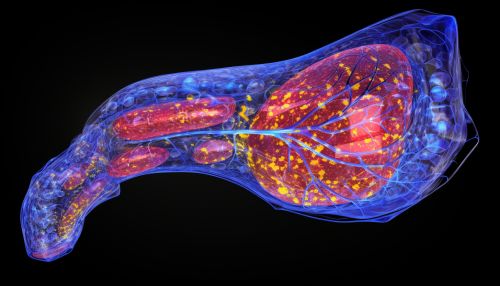Pancreatitis
Overview
Pancreatitis is a condition characterized by inflammation of the pancreas, a vital organ that plays a key role in digestion and hormone production. This disease can be acute or chronic, with both forms leading to severe complications if not treated promptly and effectively.


Classification
Pancreatitis is classified into two main types: acute pancreatitis and chronic pancreatitis.
Acute Pancreatitis
Acute pancreatitis is a sudden inflammation that lasts for a short time. It can range from mild discomfort to a severe, life-threatening illness. Most people with acute pancreatitis recover completely after getting the right treatment. In severe cases, acute pancreatitis can result in bleeding into the gland, serious tissue damage, infection, and cyst formation.
Chronic Pancreatitis
Chronic pancreatitis is long-lasting inflammation of the pancreas. It most often happens after an episode of acute pancreatitis. Heavy alcohol drinking is another big cause. Damage to the pancreas from heavy alcohol use may not cause symptoms for many years, but then the person may suddenly develop severe pancreatitis symptoms.
Causes
The causes of pancreatitis include gallstones, alcohol consumption, certain medications, high triglyceride levels, abdominal surgery, smoking, certain infections such as mumps, and injury to the abdomen. In some cases, the cause of pancreatitis is never found.
Symptoms
Symptoms of pancreatitis can vary, depending on the type and severity of the condition. Common symptoms include upper abdominal pain, fever, rapid pulse, nausea, vomiting, and weight loss. In more severe cases, the disease can cause dehydration, low blood pressure, and difficulty breathing.
Diagnosis
Diagnosis of pancreatitis is often based on the presence of symptoms and physical examination findings. However, additional tests such as blood tests, imaging studies (like CT scan or ultrasound), and endoscopic procedures may also be used to confirm the diagnosis and assess the severity of the disease.
Treatment
Treatment for pancreatitis often involves hospitalization. Initial treatments are focused on relieving pain and preventing complications. This may involve fasting for a few days while the pancreas heals, intravenous fluids, and medications for pain relief. In some cases, surgery may be needed to remove gallstones, repair damage to the pancreas, or drain fluid that has collected in the abdomen.
Prevention
Prevention strategies for pancreatitis primarily involve lifestyle modifications. This includes a healthy diet, regular exercise, avoiding alcohol or smoking, and managing other health conditions that may increase the risk of developing pancreatitis.
